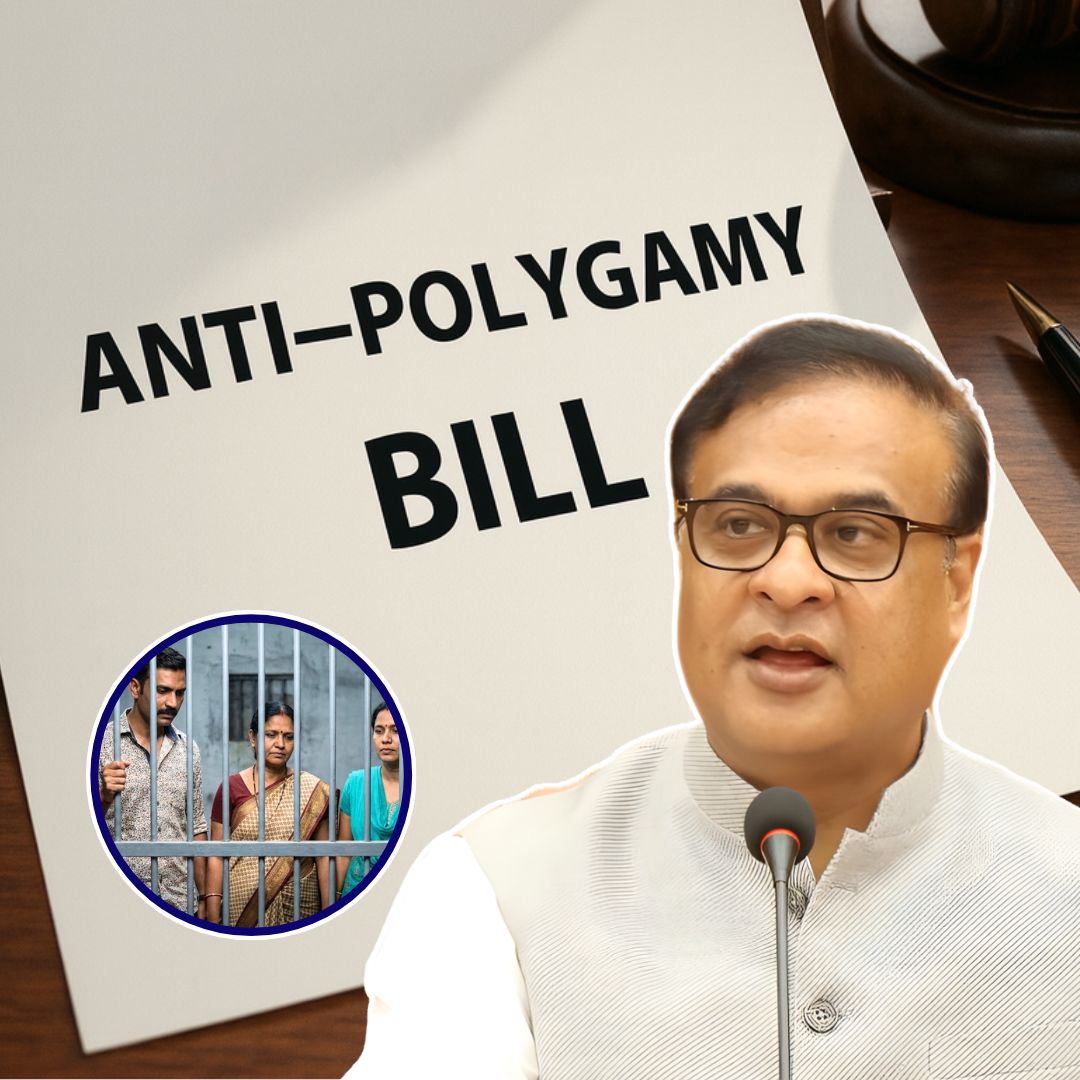On November 25, 2025, Assam Chief Minister Himanta Biswa Sarma tabled the Assam Prohibition of Polygamy Bill, 2025, in the state assembly, marking a decisive legal measure to curb polygamy. The Bill criminalises entering into or concealing a second marriage while the first is still valid, prescribing imprisonment of up to seven years and fines.
If the offence includes hiding an existing spouse from the new partner, the punishment extends to 10 years. Repeat offenders face double the penalty for every subsequent violation. The Bill also targets facilitators of polygamous marriages, religious priests, village heads, and guardians, assigning penalties of up to two years’ imprisonment and monetary fines.
Importantly, anyone convicted under this Bill becomes ineligible for government employment, assistance, or to contest elections funded or aided by Assam’s state government.
Scope, Exemptions, and Compensation Measures
The legislation applies state-wide except for Scheduled Tribes (STs) and areas governed under the Sixth Schedule of the Constitution, like Bodoland Territorial Region and hill districts in Assam, recognising their customary laws. The Bill also addresses polygamous marriages involving residents before the Act’s enforcement, penalising marriages entered into outside Assam that violate its rules.
A distinct provision establishes a compensation fund for women harmed by illegal polygamous marriages, reflecting the government’s focus on protecting vulnerable women from social and economic hardship. This fund aims to provide financial and social support to affected women, ensuring that they do not suffer unduly due to these practices.
Authorities will need to tackle significant challenges, including social stigma, underreporting, and resistance from communities where polygamy is culturally embedded. The Bill explicitly punishes not only those entering into polygamous marriages but also those who aid or conceal them, such as religious figures and local leaders, to foster accountability at all levels. The government’s engagement with tribal leaders and stakeholders in Sixth Schedule areas is crucial to address exemptions and ensure harmonious coexistence while respecting customary practices.
Political and Social Context
This Bill follows Assam’s previous strong stance against child marriage, aligning with broader attempts to reform personal laws and protect women’s rights.
Chief Minister Sarma emphasised that the Bill signifies the government’s commitment to gender justice under the principle that “Her Rights Are Non-Negotiable.” Despite opposition concerns about the timing and the applicability of the Bill on religious grounds, the state government maintains that this legal framework is essential for social progress and equality.
The Bill was introduced during the Winter Session amid political tension, with opposition parties boycotting the proceedings. Nevertheless, the government remains firm about moving forward with this reform to eliminate harmful social practices.
The Logical Indian’s Perspective
The Logical Indian views Assam’s legislation as a courageous and necessary step toward upholding constitutional values of equality and justice for women.
However, legal measures must be thoughtfully implemented alongside community engagement, education, and respect for cultural diversity to foster true social transformation. Rather than exacerbating divisions, such laws should encourage dialogue and understanding to harmoniously reconcile tradition with human rights.












